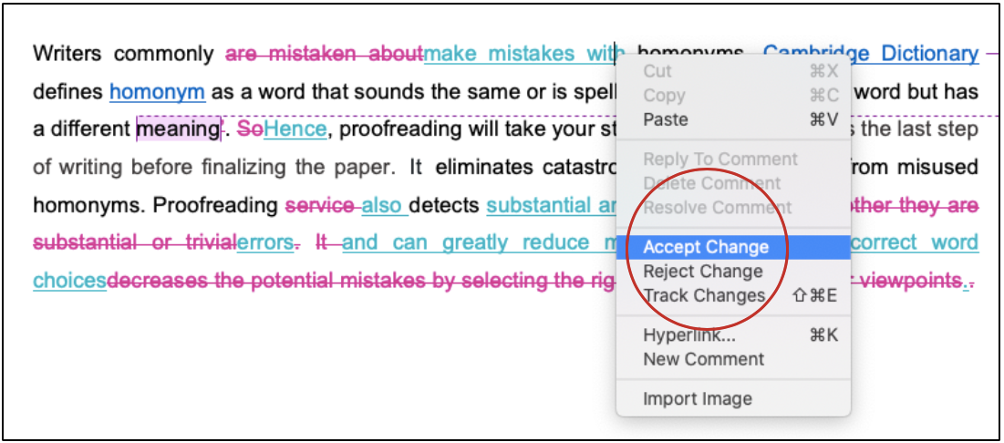What you aim to address in your dissertation relates to a research problem. It is primarily a unique issue, challenge, paradox, or breach in the current literature. It would be best if you searched for practical problems and targeted addressing them to expand the actual knowledge.

What you aim to address in your dissertation relates to a research problem. It is primarily a unique issue, challenge, paradox, or breach in the current literature. It would be best if you searched for practical problems and targeted addressing them to expand the actual knowledge. It would help if you remembered that some research would support the extant literature. At the same time, some might include breakthrough novel investigations. What is critical is your areas of interest, determining the kind of research you wish to conduct. This article aims to specify and improve a research problem. Please do not forget that when penning your research proposal or introduction, you must devise it as a problem statement or research question.
You may have an exciting dissertation or thesis topic. However, it may not constitute a solid foundation for academic research. Suppose you have not specified your research problem. In that case, you may culminate with an out-of-focus and impossible project.
You might be reiterating what has already been covered in your area of expertise. Put differently, you might be saying too much or conducting research lacking apparent objectives and confirmation. Therefore, you need a unique research problem that contributes to existing research and provides novel insights. It matters little whether you plan your dissertation, begin a research article, or pen a research proposal. You must specify your research problem clearly, stating what you plan to do and why.
After reading about your dissertation topic, you should search for the areas needing further research. Choosing an area where much discussion and controversy occur is helpful. Please note that your objective is discovering a research gap so that you can fill it with your research.
Assume you are conducting practical research. Then, you can specify a problem by perusing reports, pursuing previous research, and communicating with people who have studied in the related area or institution. Particularly relevant is to look for subjects on the performance and efficiency of the organization, what steps can be taken to improve the institution’s efficiency, areas concerning the people in the field, and challenges faced by some groups in society.
Suppose your research is related to practical training. You must find a research problem, mainly concentrating on how companies look at trainees and how trainees can benefit from the company for their professional development.
COVID-19 is more deadly in developing countries than the developed ones.
Small and medium-sized companies wish to accommodate practical trainees, while corporates are reluctant to do so.
Non-profit organizations in developing countries face the issue of a lack of democracy. In contrast, those in developed nations enjoy democracy and freedom of speech.
Hypothetical research concentrates on growing actual knowledge and comprehending instead of explicitly changing its direction. Specify a research problem by perusing recent research, theory, and discussion on your subject to determine what is missing and already acknowledged. Therefore, the following issues are directly relevant:
The research should not be a closely studied area.
It should contain two or more perspectives contradicting or negating each.
It should not be a thoroughly researched relationship.
It should comprise a controversial issue needing further debate.
Even though these problems are theoretical, they frequently have practical ramifications. Nevertheless, their target is beyond addressing an imminent issue. Keep in mind that some research may involve a case study.
Huntington’s Clash of Civilization theory is hard to prove by any measures.
The impacts of feeding regimens on beef tenderness are inconclusive.
The hiring of male managers more than female ones is beyond understandable.
What follows is to discover the existing knowledge about the problem and suggest precisely what perspective you will take to address it. You should specify who will be affected by the problem, how long the subject has been a hot topic, what has been conducted so far, and whether any proposed solutions exist. Other critical questions include the people's place, time, and identity to concentrate on and what issues cannot be covered. On top of that, what ramifications would result if the issue could not be solved, and who would benefit the most if the problem were relevant?
Best Edit & Proof expert editors and proofreaders focus on offering papers with proper tone, content, and style of academic writing, and also provide an upscale editing and proofreading service for you. If you consider our pieces of advice, you will witness a notable increase in the chance for your research manuscript to be accepted by the publishers. We work together as an academic writing style guide by bestowing subject-area editing and proofreading around several categorized writing styles. With the group of our expert editors, you will always find us all set to help you identify the tone and style that your manuscript needs to get a nod from the publishers.

You can also avail of our assistance if you are looking for editors who can format your manuscript, or just check on the particular styles for the formatting task as per the guidelines provided to you, e.g., APA, MLA, or Chicago/Turabian styles. Best Edit & Proof editors and proofreaders provide all sorts of academic writing help, including editing and proofreading services, using our user-friendly website, and a streamlined ordering process.
Visit our order page if you want our subject-area editors or language experts to work on your manuscript to improve its tone and style and give it a perfect academic tone and style through proper editing and proofreading. The process of submitting a paper is very easy and quick. Click here to find out how it works.
Our pricing is based on the type of service you avail of here, be it editing or proofreading. We charge on the basis of the word count of your manuscript that you submit for editing and proofreading and the turnaround time it takes to get it done. If you want to get an instant price quote for your project, copy and paste your document or enter your word count into our pricing calculator.
Contact us to get support with academic editing and proofreading. We have a 24/7 active live chat mode to offer you direct support along with qualified editors to refine and furbish your manuscript.
Follow us on Twitter, LinkedIn, Facebook, Instagram, and Medium.
For more posts, click here.
This article explains how to define a research problem for your dissertation or thesis. To give you an opportunity to practice proofreading, we have left a few spelling, punctuation, or grammatical errors in the text. See if you can spot them! If you spot the errors correctly, you will be entitled to a 10% discount.
How to Determine Variability in a Dataset
14.10.2023
Population vs Sample | Sampling Methods for a Dissertation
14.01.2023
7 Issues to Avoid That may Dent the Quality of Thesis Writing
18.12.2022
How to Ensure the Quality of Academic Writing in a Thesis and Dissertation?
04.12.2022
How to Define Population and Sample in a Dissertation?
03.12.2022
How can You Establish Experimental Design in Your Dissertation?
12.11.2022
How Can You Decide on Tense Usage in Your Dissertation?
04.11.2022
How Can You Write an Abstract for Your Dissertation?
30.10.2022
How to Build Research Methods for Your Dissertation
14.10.2022
How to Build a Strong Hypothesis for Your Dissertation
13.10.2022

The dissertation writing process is a lengthy, extensive and multi-faceted undertaking spanning several months (or even years). It is an exacting exercise comprising several steps, each with its own requisites that scholars need to fulfill duly. Hence, regardless of how strategic and meticulous a scholar's dissertation writing approach is, there are bound to be certain inconsistencies - grammatical errors, incoherent phrasing, inappropriate synonyms, formatting errors, etc., - even in the final draft.
Continue Reading
Writing a thesis or dissertation is considered the final phase of your Ph.D. journey. You must cover three to five years of study and research into your thesis. A doctoral thesis or dissertation is a long essay of knowledge and research on a specific niche that poses interesting questions and answers with your reasoning. Ph.D. candidates should carefully choose the study topic according to their expertise. This article explains how to write an impeccable Ph.D. thesis for outstanding results in 6 helpful steps.
Continue Reading
Research methodology is about the data collection and analysis methods employed in your research. Thus, this section addresses what you performed and how you did it, letting readers assess the reliability and validity of your study and is a critical part of your thesis or dissertation.
Continue Reading